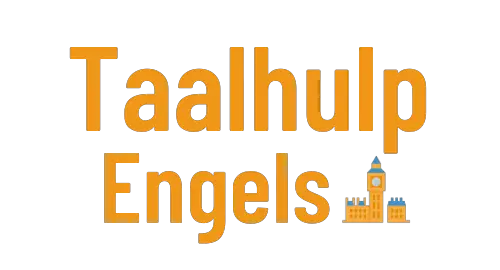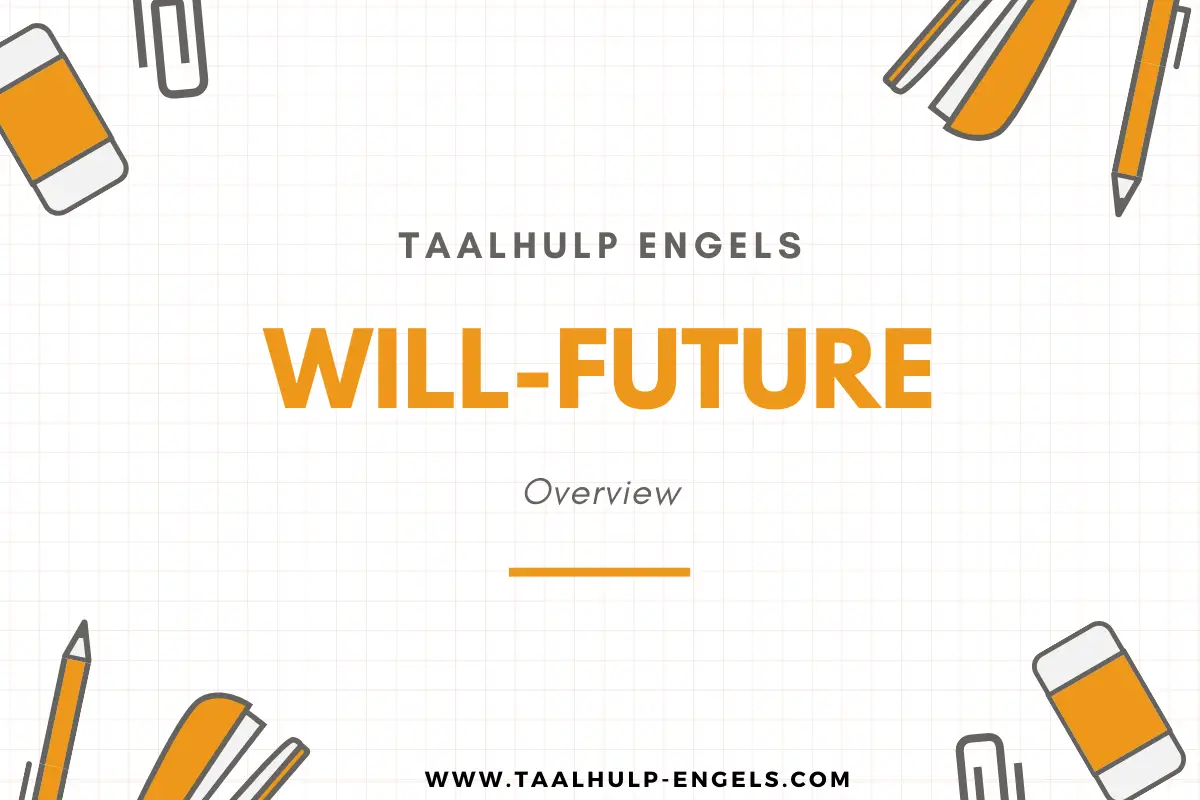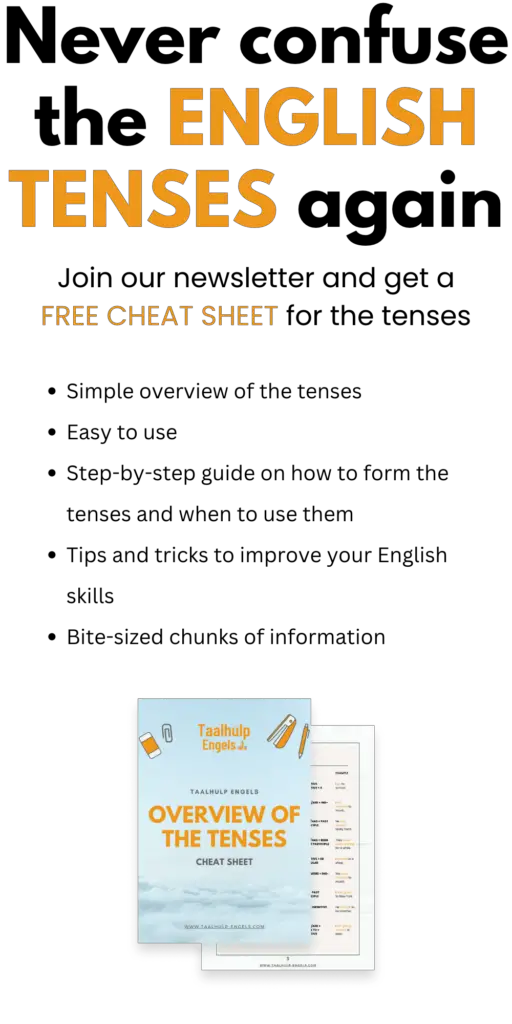There are multiple ways to talk about the future in English and the ‘will-future’ (or future simple) is one way of doing that. On this page, you have a complete overview of when you use this tense, how you form it and you will also find some examples and exercises.
Will-future tense
The will-future is also known as the future simple. You use this tense to talk about things in the future in several different situations. Below, you have more information about these situations:
When you want to talk about the ‘pure’ future. This means something in the future that you cannot change; whatever you do, it will happen anyway.
- I have just seen the weather report. It will rain tomorrow.
When you are talking about a decision on the spot; so something you did not think about before.
- Oh no! She has just fainted. I will call an ambulance right away.
Predictions or beliefs about the future and beliefs that start with ‘I think’ or ‘I believe’.
- I think she will pay me back next week.

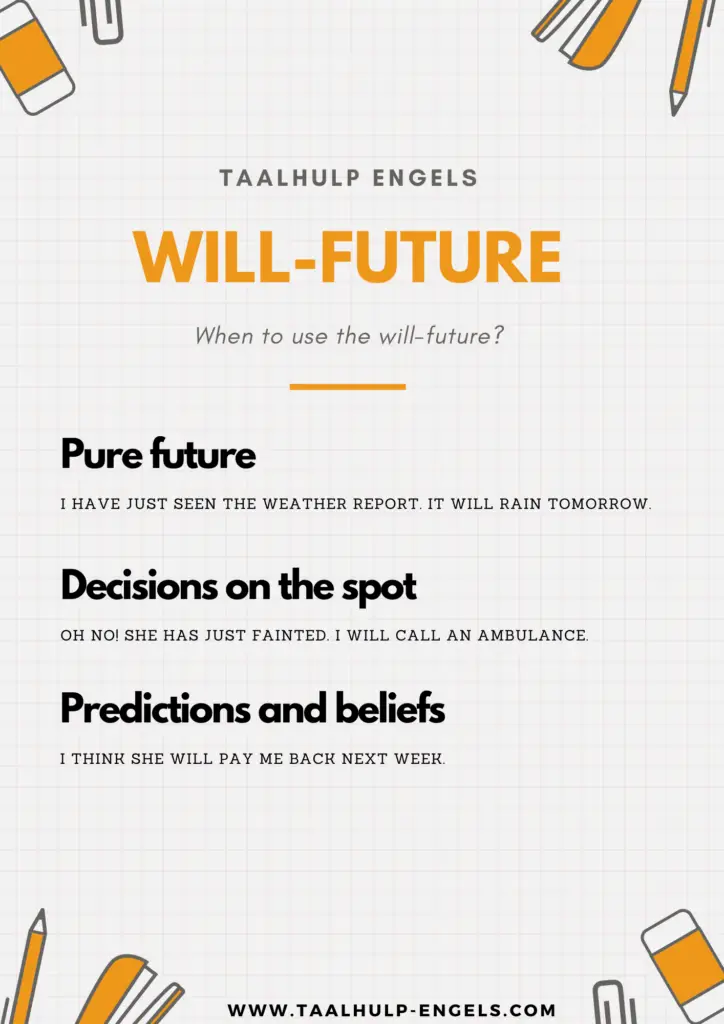
How to form the will-future
Will-future positive
Forming a positive sentence in the will-future (or future simple) is fairly easy. As the name already suggests, you use ‘will’ and put this before the infinitive of the main verb. This is what it looks like:
will + infinitive
| The sun will shine |
| It will rain |
| They will waste money |
Instead of using the longer form ‘will’, you could also use the short form <‘ll>. This short form is mostly used in spoken English, but can be used in written English as well. The long form is mainly used in written communication. Two examples of the short form:
| I‘ll go to the store |
| He‘ll call his boss |
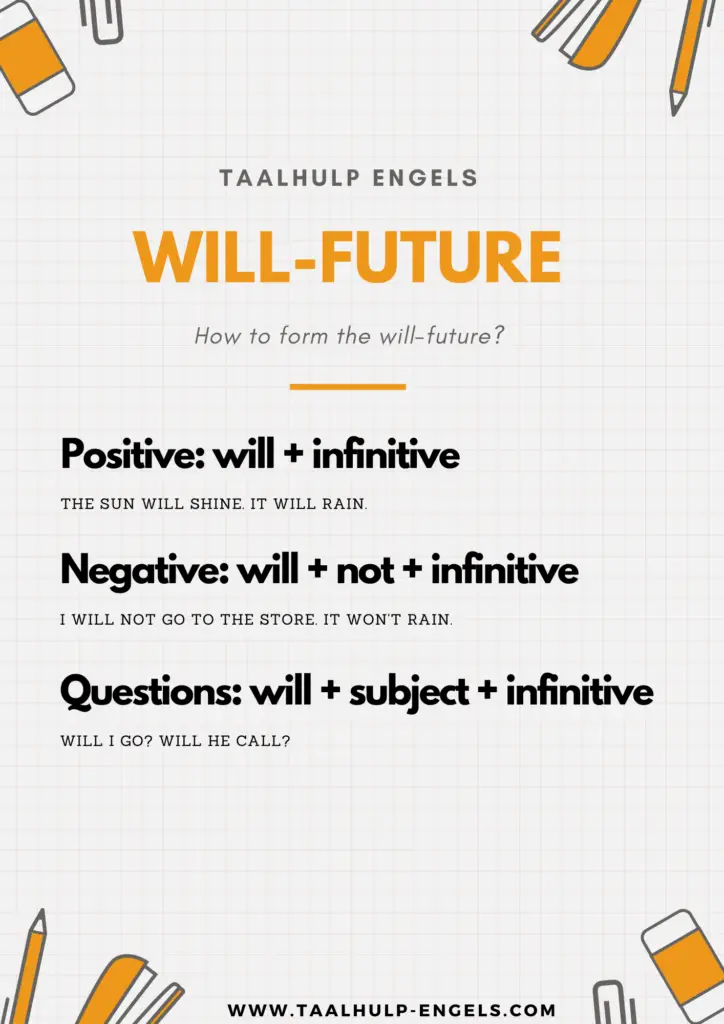
Will-future negative
You use ‘will’, followed by ‘not’ and the infinitive of the main verb. This is what it looks like:
will + not + infinitive
| The sun will not shine |
| It will not rain |
| They will not waste money |
You can also use the short form when making negative sentences. The short form for ‘will not’ is ‘won’t’. This one is mostly used in spoken English, but can also be used in written English. Below, you have two examples:
| I won’t go to the store |
| He won’t call his boss |
Will-future questions
If you want to form questions in the will-future, you need three parts:
will + subject + infinitive of the main verb
| Will I go to the store? |
| Will he call his boss? |
| Will they waste money? |
Examples
| Positive | Negative | Questions |
|---|---|---|
| I will buy He will drink They will be | I will not buy He will not drink They will not be | Will I buy? Will he drink? Will they be? |
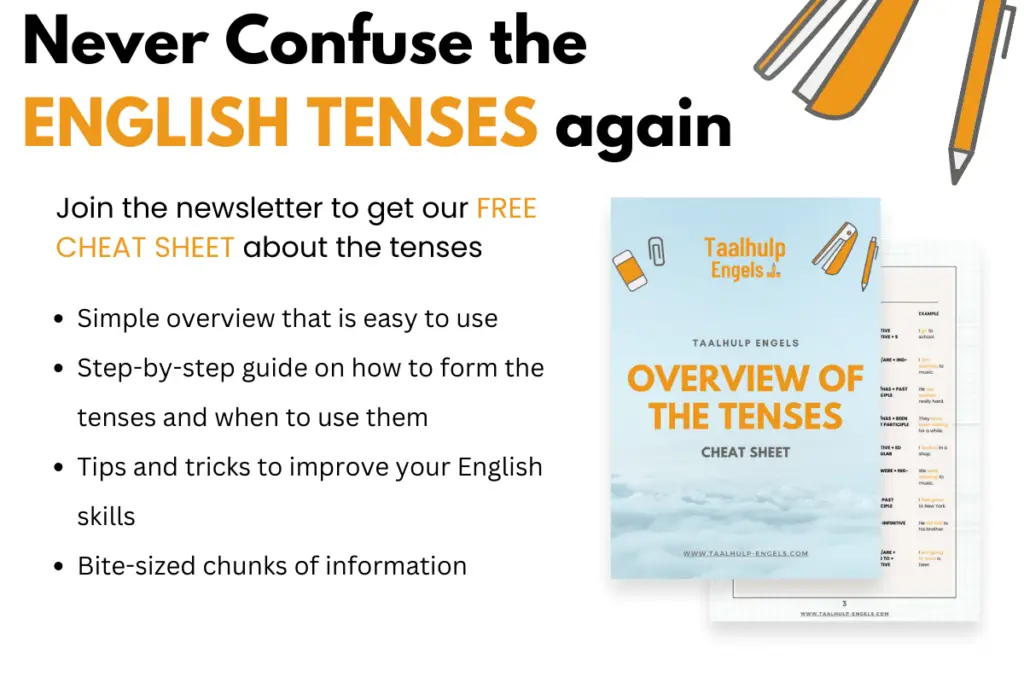

Exercises
- Will-future Exercise 1
- Will-future Exercise 2
- Will-future Negative Exercise 1
- Will-future Negative Exercise 2
- Will-future Questions Exercise 1
- Will-future Questions Exercise 2
- Will-future Mixed Exercise 1
- Will-future Mixed Exercise 2
- Will-future Mixed Exercise 3
- Will-future Mixed Exercise 4
- Will-future Mixed Exercise 5
